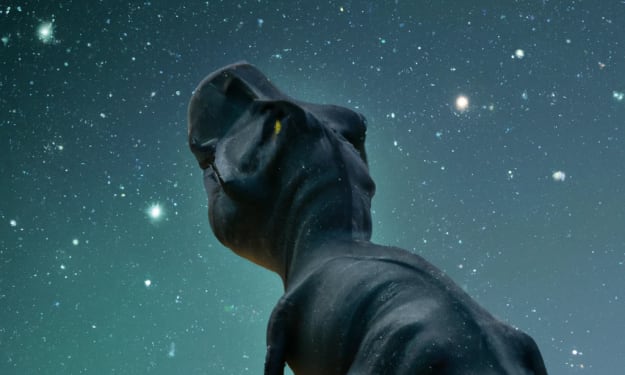
Eid Mubarak, a phrase that resonates with Muslims around the world, is a joyous greeting exchanged during the auspicious occasion of Eid. Eid, which means "festivity" or "celebration" in Arabic, marks the end of the holy month of Ramadan. This religious holiday holds tremendous significance, serving as a time of reflection, spiritual growth, and communal harmony. During Eid, Muslims come together to celebrate their faith, express gratitude, and extend warm greetings to one another.
Historical and Cultural Significance (200 words): Eid has deep historical and cultural roots, dating back to the time of Prophet Muhammad, the founder of Islam. It is believed that the first Eid was celebrated in 624 CE, when the Prophet Muhammad successfully completed the journey from Mecca to Medina. This journey, known as the Hijra, marked a significant turning point in Islamic history and served as a foundation for the establishment of the Islamic calendar.
Eid-ul-Fitr, commonly referred to as Eid, is celebrated on the first day of the Islamic month of Shawwal, immediately following the month of Ramadan. It is a time of joy and thanksgiving, as Muslims break their month-long fast and rejoice in the blessings bestowed upon them by Allah.
The Spirit of Eid is not merely a day of festivities but embodies a deeper spiritual essence. It serves as a reminder of the values and principles upheld by Muslims throughout the year. One of the core aspects of Eid is expressing gratitude for the blessings received during Ramadan and seeking forgiveness for any shortcomings. Muslims engage in acts of charity and generosity, sharing their blessings with those less fortunate, emphasizing the importance of empathy and compassion.
Unity and Community Eid is a time of unity and communal harmony. Families and friends gather to offer prayers at the mosque, exchange greetings, and partake in festive meals. The sense of togetherness is palpable as people of all ages and backgrounds come together, reinforcing the bonds of friendship and kinship. It is a time when social barriers are transcended, and Muslims reach out to their neighbors and the wider community to spread joy and goodwill.
Culinary Delights (150 words): One cannot overlook the culinary delights that accompany Eid celebrations. Traditional dishes and sweet delicacies are prepared and shared among loved ones. Mouth-watering feasts, such as biryani, kebabs, samosas, and sheer khurma (a milk-based sweet dessert), are relished with great enthusiasm. The aroma of spices fills the air as families come together to indulge in delectable treats, adding to the festive ambiance.
Conclusion (150 words): Eid Mubarak is a heartfelt greeting that encapsulates the joy and blessings of the festive occasion. Beyond the festive cheer and culinary delights, Eid is a time for introspection, gratitude, and strengthening social bonds. It is a time to reflect on one's spiritual journey and seek forgiveness, while also reaching out to others with kindness and generosity. Eid serves as a powerful reminder of the values of unity, community, and love, transcending boundaries and bringing people together in celebration. As Muslims around the world exchange greetings of Eid Mubarak, the underlying message remains the same — a wish for peace, prosperity, and happiness for all.In Nigeria, a country with a significant Muslim population, Eid holds immense cultural and religious importance. Nigerians eagerly anticipate the arrival of Eid-ul-Fitr, known locally as "Sallah" or "Id-el-Fitr." This festive occasion brings together Muslims from diverse ethnic backgrounds, creating a unique blend of traditions and customs. Eid Mubarak in Nigeria is a time of jubilation, unity, and deep-rooted faith, celebrated with great enthusiasm and joy.
Religious Observance (150 words): For Nigerians, Eid Mubarak is an occasion to commemorate the end of Ramadan, a month of fasting, prayer, and self-reflection. It is a time when Muslims express gratitude for the strength and discipline shown during the fasting period. In Nigeria, Muslims wake up early to perform the special Eid prayer, known as "Salat al-Eid," held in mosques, prayer grounds, and open spaces. Imams deliver sermons that emphasize the importance of love, compassion, and unity among the Muslim community.
Cultural Traditions (200 words): Nigerian Muslims infuse their cultural heritage into Eid celebrations, creating a vibrant tapestry of traditions. Festive attire, colorful clothing, and traditional outfits such as boubous, agbadas, and hijabs adorn men, women, and children. Nigerians take pride in their fashion choices during Eid, adding a touch of elegance and grandeur to the festivities.
Eid in Nigeria is marked by the exchange of gifts, known as "Eidi," particularly among children. Parents, relatives, and neighbors give money, sweets, toys, and new clothes to children, spreading joy and happiness. The spirit of generosity extends beyond immediate family, as Nigerians also engage in acts of charity, providing food and assistance to the less fortunate.
Culinary Delights (150 words): Nigerian cuisine plays a prominent role in Eid celebrations. Families gather to prepare and enjoy an array of traditional delicacies, including jollof rice, moin moin (steamed bean pudding), suya (grilled meat skewers), and a variety of sweets like kuli-kuli, chin chin, and coconut candy. These delectable dishes represent the richness of Nigerian culinary traditions and are shared with neighbors and extended family members, promoting unity and togetherness.
Community Celebrations (100 words): Eid Mubarak in Nigeria is a time of community bonding and celebration. Families visit one another, exchanging greetings and partaking in festive meals. Neighborhoods come alive with vibrant decorations, including colorful lights and ornate displays. Community events, such as cultural performances, musical shows, and traditional dances, are organized to foster a sense of camaraderie and merriment.
Conclusion (100 words): For Nigerians, Eid Mubarak is a cherished occasion that unites people in faith and cultural heritage. It represents a time of deep spirituality, togetherness, and appreciation for blessings. Nigerian Muslims embrace the values of generosity, kindness, and unity, extending their celebrations to encompass the wider community. Eid Mubarak in Nigeria is not only a religious festival but also a cultural extravaganza that showcases the diverse traditions and





Comments
There are no comments for this story
Be the first to respond and start the conversation.